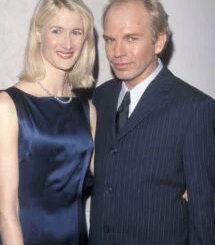
Since the beginning of time, humans have asked the question: “What happens to us after we die?”.
Religious or spiritual people often believe in a heaven or afterlife. Some believe that nothing happens to us; we just die. Others, however, believe that our souls live on after we die. A couple of researchers say that they have the science to that this might be a possibility. (1)
The Soul Doesn’t Die When Our Bodies Do
After extensive research, two experts are saying that while our bodies die, our consciousness – or our soul – lives on forever. Quantum mechanics, they say, makes this possible. Quantum mechanics is the science dealing with the behavior of matter at the atomic and subatomic levels. It accounts for the properties of molecules and atoms, and the things that make them. (2) This includes (2):
Neurons
Electrons
Protons
Quarks
Gluons
Other esoteric particles
Scientists Stuart Hameroff and Sir Roger Penrose say consciousness is simply information stored at this quantum level. (1)
Orchestrated Objective Reduction
The pair say that this storage process is Orchestrated Objective Reduction (Orch-OR). This is via a structural component of human cells, protein-based microtubules, that carry quantum information. (1, 3)
“Let’s say the heart stops beating, the blood stops flowing; the micro-tubules lose their quantum state,” explains Dr. Hameroff. “The quantum information within the micro-tubules is not destroyed, it can’t be destroyed, and it just distributes and dissipates to the universe at large.” (1)
He says that if the person is resuscitated, then the information just goes back into the microtubules, and the person becomes conscious again. This is what we call a “near-death experience.” If, instead, the patient dies, then their consciousness can possibly exist outside of the body as a soul. (1)
Our Physical Universe Is Just Our Perception
Researchers from the Max Planck Institute for Physics in Munich say that there is an infinite beyond after death. According to them, the world we live in is just our perception and that our souls go into this infinite beyond when our bodies die. (1)
“What we consider the here and now, this world, it is actually just the material level that is comprehensible,” says Dr Hans-Peter Durr from the institute. “The beyond is an infinite reality that is much bigger.” (1)
Hameroff and Penrose’s research shows that consciousness comes from deeper level microtubule vibrations. This not only helps us to better understand what the human consciousness is, but may also help treat mental, neurological, and cognitive conditions. (3)
What do you think? Do you think our souls live on after we die?
My Husband Refused to Take Photos of Me on Our Vacation — His Reason Shocked Me, but My Revenge Left Him in Tears

Hi everyone, Hannah here. This is a difficult story to share, but I feel like I need to. I’m a 38-year-old mom of two amazing kids (seven and five), and I’ve been married to my husband, Luke, for nearly a decade. We’ve had our share of challenges, like any couple. But something that happened on our recent trip to Mexico shocked me.

A mother with her little daughter and son | Source: Midjourney
Imagine this: we’re in Mexico, surrounded by stunning beaches and gorgeous weather. I was so excited about this trip. I had planned everything meticulously because, let’s face it, as a mom, I rarely get a break.
This was supposed to be our time to reconnect, relax, and just enjoy each other’s company. But right from the start, Luke was acting weird. Every time I asked him to take a photo of me or with me, he’d brush it off.

A white couple on a vacation in Mexico | Source: Midjourney
“I’m not in the mood,” he’d say, or “Can we do it later?” At first, I didn’t think much of it. Maybe he was just tired from the travel, right? But then it kept happening.
We were on this beautiful beach, and I was wearing this new dress I bought just for the trip. I felt good about myself, which is rare these days after two kids and all. I asked Luke, “Can you take a picture of me with the sunset?”
He sighed and muttered, “Not now, Hannah.”

A white woman posing for a photo during sunset on the beach | Source: Midjourney
I frowned, feeling a bit hurt. “Why not? It’ll just take a second.”
“I said I’m not in the mood,” he snapped, turning away.
That stung. I mean, we’re on vacation, and he can’t take a moment to snap a photo? I felt embarrassed and confused.
Throughout the trip, I noticed him being extra protective of his phone. He’d hide the screen whenever I walked by and took it with him even to the bathroom. My gut told me something was off, but I tried to ignore it.

A closeup shot of a mobile phone lying on a bed | Source: Midjourney
One afternoon, Luke was in the shower, and I saw his phone lying on the bed. My heart pounded as I picked it up. I know it’s wrong to invade someone’s privacy, but I had to know. I quickly unlocked his phone and opened his recent messages.
There it was, a group chat with his friends. And what I read made my blood run cold. He had written, “Imagine, guys, at her weight, she still wants me to take pictures of her! Where would she even fit in the photo? She hasn’t been the same since giving birth.”

A shocked woman checking a mobile phone | Source: Midjourney
Tears welled up in my eyes, and I felt like I couldn’t breathe. This was the man I loved, the father of my children, saying such cruel things behind my back. I thought we were partners, that he loved me for who I am, but here he was, mocking me to his friends.
I put his phone back and sat there in shock. How could he? I felt devastated and betrayed. Our marriage was far from perfect, but I never imagined he thought so little of me. I cried quietly, not wanting the kids to hear.

A depressed woman sitting in a hotel room | Source: Midjourney
After some time, my tears dried up, and I felt something else: anger. I wasn’t going to let him get away with this. I needed to do something to show him that his words had consequences. That’s when I had an idea.
I took out my phone and went through the photos I had taken myself during the trip. I selected the best ones and posted them on Facebook with a caption that read, “Looking for a new vacation partner. Am I really so unattractive that even my husband doesn’t want to take pictures of me?”

A woman taking a selfie on a beach | Source: Midjourney
Almost immediately, the post started getting likes and comments. My friends and even some acquaintances chimed in with supportive messages. They praised my photos, calling me beautiful and expressing their shock at Luke’s behavior. I didn’t mention the specifics of what he said, but the message was clear.
When Luke came out of the shower, he noticed my mood had shifted. “Everything okay?” he asked, probably sensing the tension.

A woman using her phone while sitting in a room | Source: Midjourney
“Just peachy,” I replied, not looking up from my phone. I was still furious and hurt, and I couldn’t bring myself to make eye contact with him.
The next day, I was still reeling from the shock of Luke’s betrayal. I couldn’t shake off the things he had said about me. But then, something happened that added another layer to this already complicated situation.
Just before our trip, I had received news that my uncle, whom I had never met, had passed away and left me a substantial inheritance.

A closeup shot of a middle-aged man signing a document | Source: Midjourney
I had planned to share this news with Luke during our vacation, thinking it would be a joyous surprise. But after discovering what he really thought of me, I decided to keep it to myself.
That morning, word somehow reached Luke through his mother, who had found out about the inheritance. I was in the middle of packing our bags, ready to cut the trip short, when Luke walked in with a bouquet of flowers.
He had this sheepish look on his face, one that I had seen a few times before when he knew he had messed up.

A woman packing her suitcase | Source: Midjourney
“Hannah, I’m so sorry for everything,” he started, holding out the flowers. I took them without a word, waiting to hear what he had to say next.
He continued, “I know I’ve been a jerk. I shouldn’t have said those things. But honey, with your new money, you can hire a trainer and lose weight.”
I couldn’t believe my ears. Did he really think an apology would be enough, followed by a suggestion that I use my inheritance to change myself for him? I was overcome with rage and replied, “Maybe I will, but without your advice.”

A closeup shot of a man holding a bouquet of flowers | Source: Midjourney
The look on his face was priceless. He had expected me to just forgive him and move on. But I was done. I had reached my breaking point. “Luke, I’m divorcing you,” I said, my voice steady despite the turmoil inside me.
His eyes widened, and for a moment, he was speechless. Then, to my surprise, he began to cry. “Please, Hannah, don’t leave me,” he begged. “I’ve already told my friends I was planning to buy a new SUV to go off-roading with them, and now, without your money, all my plans are ruined.”

A closeup shot of a man crying | Source: Midjourney
I was dumbfounded. It hit me then how little he valued me. It wasn’t about our relationship or our family; it was about what my money could do for him. I looked at him with pity and determination.
“It seems like you love my money more than me. You can find another way to buy your SUV, but you won’t do it with my money or by humiliating me. Goodbye, Luke.”
I walked away from him then, feeling a strange sense of relief coupled with sadness. This wasn’t how I had envisioned my life, but it was time to take control of my happiness.

A new black SUV parked along the roadside | Source: Pexels
I spent the rest of the day making arrangements to return home and start the divorce process. The support from my friends and family continued to pour in. Each comment and message helped me regain my confidence and belief in my own worth.
I realized that I didn’t need someone like Luke to validate my beauty or my value. I was enough, just as I am. I decided to move on with my life, focusing on my kids and myself.

Three women spending time together | Source: Midjourney
In the days that followed, I started working out, not because Luke suggested it, but because I wanted to feel healthier and stronger. I took up new hobbies, spent more time with friends, and even considered going back to school.
One day at the mall, I ran into Luke. He startled me with a half-compliment. “Hey! I almost didn’t recognize you, Hannah. You look different. How are you and the kids?”
“We’re both doing great,” I replied, not wanting to continue the conversation.
“Hannah, I’ve been meaning to ask you if…”

A man talking to a woman in a mall | Source: Midjourney
“I’m running late, Luke. I have to be somewhere. Excuse me,” I said before leaving. From the corner of my eye, I saw confusion and pain paint his otherwise calm and confident face.
But that didn’t bother me anymore because I was now free to live my life on my terms and feel comfortable in my skin. Rather than mourning my doomed marriage, I was ready to move forward with strength and self-love.
So, what do you think? Did I handle things correctly or was my reaction a little too overboard? What would you have done differently in my shoes?

A woman smiling while standing near a window | Source: Midjourney
If you enjoyed this story, here’s another one you might like: When Eliza’s 10th wedding anniversary comes around, she hopes that Tom will take her away for a romantic getaway. But when he forgets about their anniversary and needs to work, she turns it into a girls’ weekend, only for her to see that Tom’s business trip is a rendezvous with his mistress.
This work is inspired by real events and people, but it has been fictionalized for creative purposes. Names, characters, and details have been changed to protect privacy and enhance the narrative. Any resemblance to actual persons, living or dead, or actual events is purely coincidental and not intended by the author.
The author and publisher make no claims to the accuracy of events or the portrayal of characters and are not liable for any misinterpretation. This story is provided “as is,” and any opinions expressed are those of the characters and do not reflect the views of the author or publisher.



Leave a Reply